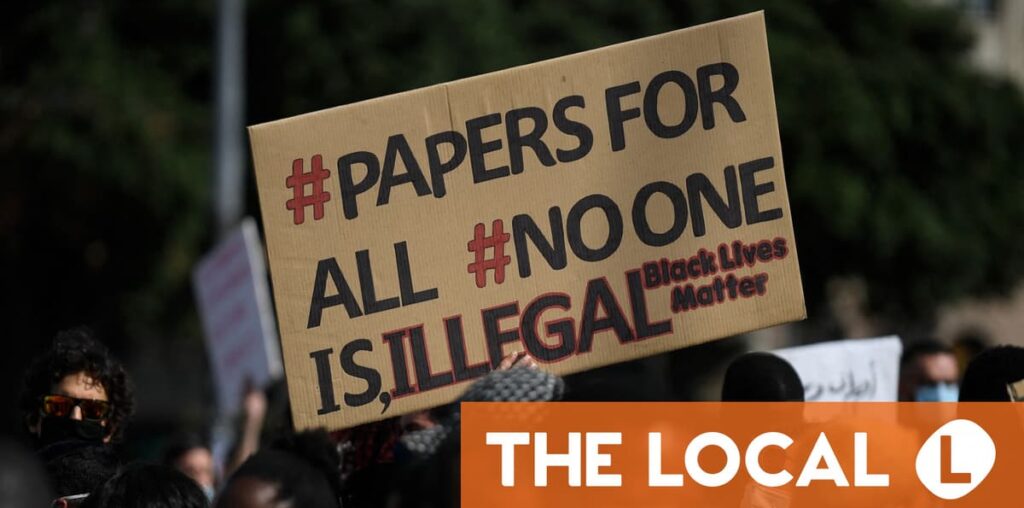
The Spanish cabinet has approved a series of new immigration reforms that will simplify the regularisation process for migrants living in Spain irregularly.
The changes, which are aimed at attracting and retaining foreign workers as well as bringing what El País has called an “underground economy” into the mainstream, will come into force six months after its publication as state law.
It will now be easier for migrants living in Spain illegally to ‘regularise’ their immigration status, and rules for family reunification and the regulation of temporary work permits for migrants have also been altered. With these measures, the government anticipates that around 300,000 migrants could be regularised annually over the next three years.
Advertisement
However, it should be noted that these are more general reforms and not related to the specific proposals for the blanket regularisation of illegal migrants, something that benefit half a million migrants living in Spain without papers. That law is still making its way through the machinery of the Spanish legislative process.
READ ALSO: What Spain’s mass residency scheme could mean for unregistered foreigners
New changes
Of the changes approved today, foreigners who have studied in Spain will now be able to move more easily from a study visa to a residence and work permit, as long as they have an employment contract in a sector that corresponds to what they have studied.
Visas for job-seeking, which are usually available for children or grandchildren of Spaniards or in certain industries or parts of the country, will now be valid for one year instead of just the current three months.
Additionally, a new transitional means of regularisation is created for asylum seekers who have been refused protection but are in Spain illegally.
Advertisement
Arraigos
However, the bulk of the changes centre on modifications to the broader arraigo system. Arraigo is the process that allows any non-European citizen who has been living in Spain illegally for a certain amount of time, to obtain residency and legalise their status here.
An arraigo will be granted under special circumstances only, typically when you can prove you have a genuine connection to Spain.
There were previously four different types of arraigo permits: arraigo familiar (family), arraigo laboral (labour), arraigo para la formación (for students) and arraigo social (social).
The changes approved by cabinet essentially modify the pre-existing forms, including changes to requirements and waiting times, and create one new type.
READ ALSO: Arraigo – How Spain’s residency under special circumstances works
Arraigo para la formación – The student arraigo will change to ‘arraigo socioformativo’ and now allow students who wish to work up to 30 hours a week. Until now they needed a contract to apply for a work permit, which will now be granted automatically.
The student or arraigo for studies is generally available to those who have been living in Spain illegally and continuously for two years and want to continue to stay in Spain specifically to study or undergo professional training. You may do vocational training, a master’s degree, training authorised by the public employment services or get a technical aptitude certificate.
Arraigo social – The waiting period for requesting the arraigo social will be reduced from three to two years of irregular residence in Spain.
Arraigo laboral – The requirement will now be to present one or more work contracts that guarantee at least a 20-hour working week. You’ll still need to prove you’ve been living in Spain continuously for a period of two years.
You must also prove that you’ve been working in Spain, albeit illegally, for a period of at least six months or 183 days. You can prove this either through court papers, if the company was found to be hiring illegally or through their books. If granted you will be issued with a one-year residency card.
READ ALSO: The vocab you’ll need when applying for Spanish residency
Advertisement
Arraigo familiar – The main change is that it’s being limited to a parent or guardian of a minor or providing support to someone with a disability who is a national of other EU Member States.
The rest of the cases will now be regulated via rules on family members with Spanish nationality. The arraigo familiar is different from the other arraigos because you are not required to have lived illegally in Spain for a certain amount of time before you apply for it. More guidance on how exactly this change will work practically is expected when the law is finalised and published.
Arraigo de segunda oportunidad (second-chance residence permit) – A new type of arraigo for people who had a residence permit in the past and for some reason were unable to renew.
READ ALSO: New report reveals how Spain discriminates against foreigners

